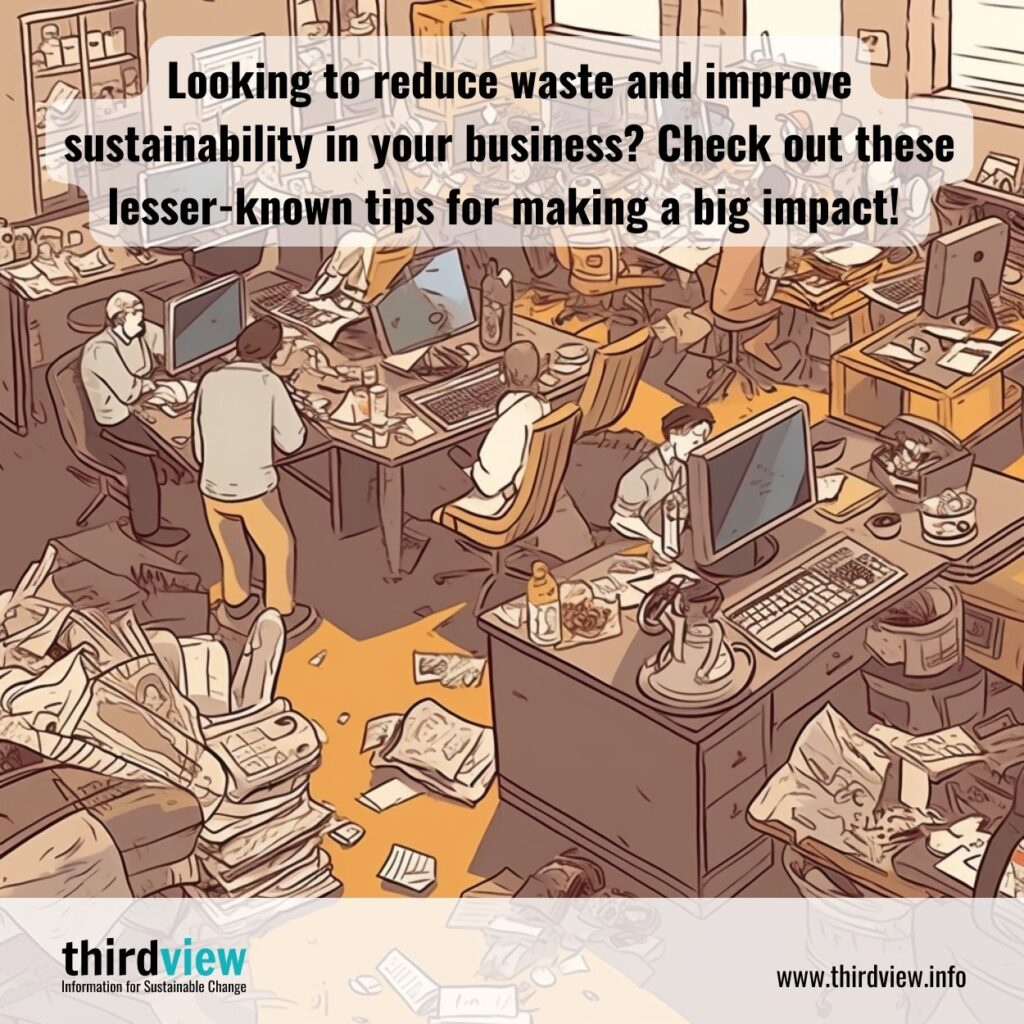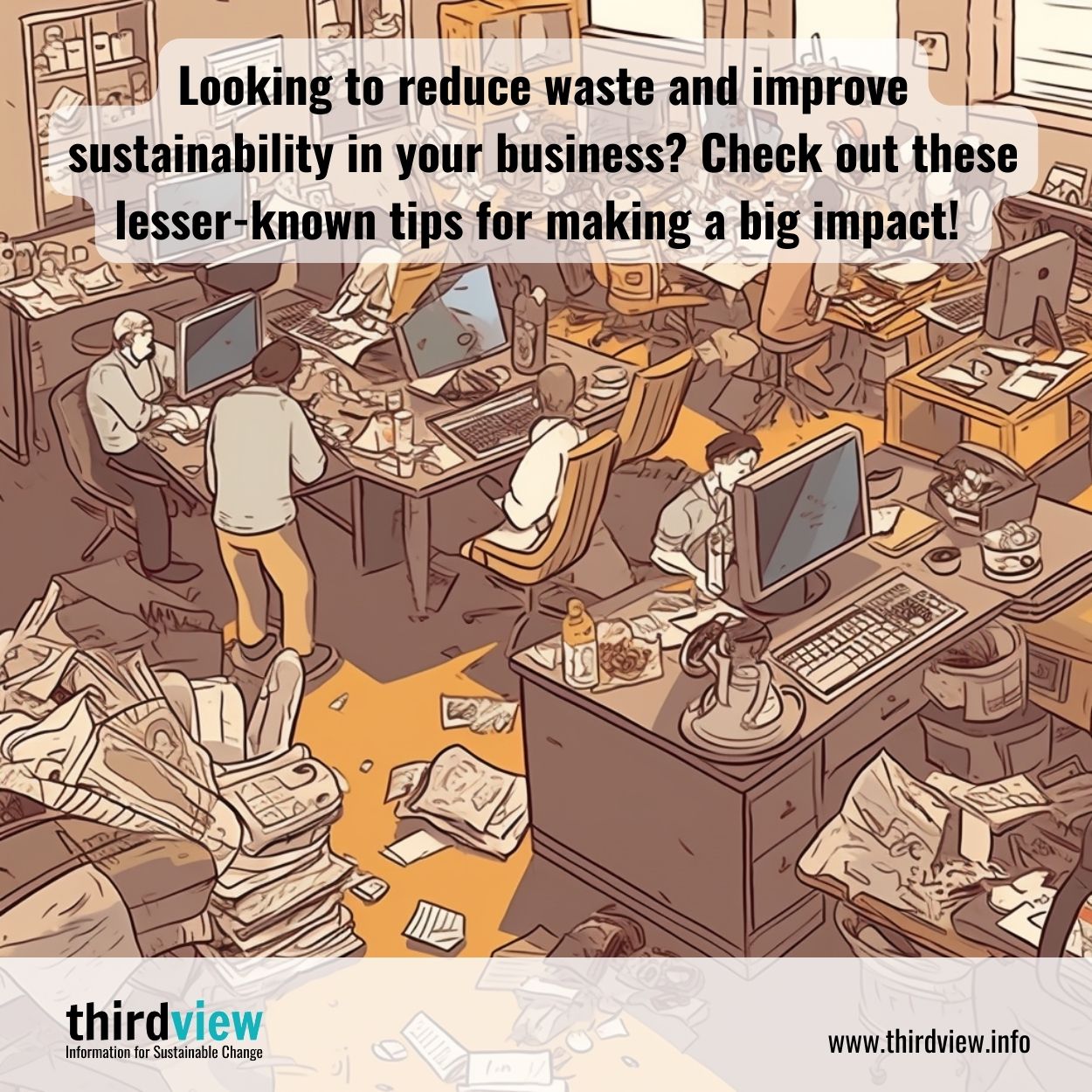In a world where climate change and environmental concerns have become increasingly pressing, it’s vital that businesses take responsibility for their impact on the planet. While many companies invest in large-scale sustainability projects, it’s often the small, simple changes that can make the biggest difference. In this blog post, we’ll explore some lesser-known tips for reducing waste and improving sustainability within your business. From office practices to supply chain management, there are many small steps you can take to make a big impact.
Embrace the Paperless Office
One of the simplest and most effective steps you can take towards a more sustainable business is to eliminate unnecessary paper usage. Start by encouraging employees to use digital communication methods, like emails and instant messaging, instead of printing out documents or leaving physical notes. Implementing a paperless invoicing and billing system can also help to reduce paper usage, cutting back on costs and improving efficiency.
Choose Sustainable Suppliers
Sustainability isn’t solely based on internal practices. By carefully choosing suppliers and partners with strong sustainability practices of their own, businesses can significantly reduce their carbon footprint. When selecting vendors, find out about their environmental policies, energy usage and waste management practices. You can also look for suppliers who offer carbon-offsetting options or environmentally friendly products, such as recycled materials and low-energy lighting.
Reconsider Your Packaging
Packaging waste is a major contributor to environmental degradation, particularly in the eCommerce industry. But there are ways to reduce your impact without sacrificing product quality or customer experience. Consider using recycled or biodegradable materials for your packaging or investigate more efficient packaging designs that use fewer materials overall. In addition to reducing waste and lowering costs, sustainable packaging initiatives can also make your business more attractive to environmentally conscious consumers.
Promote Sustainable Commuting
Transportation is a significant contributor to carbon emissions, but businesses can take steps to reduce that impact by encouraging employees to commute using more sustainable methods. Offer incentives for carpooling, cycling or using public transportation, provide bike parking facilities or electric vehicle charging stations, or even promote remote workdays to eliminate the need for commuting altogether. By making it easier and more rewarding for employees to choose sustainable options, your business can significantly reduce its carbon footprint.
Implement Energy Efficiency Practices
Reducing energy usage is a key component of any sustainable business plan. Implement energy-saving practices everywhere possible, such as turning off lights and electronics when not in use, replacing inefficient light bulbs with LED alternatives, and using timers or motion sensors to control heating and cooling systems. You can also invest in renewable energy sources like solar panels or wind turbines to power your business operations.
By implementing small, sustainable practices throughout your organization, your business can significantly reduce its impact on the environment – and often save money in the process. From cutting back on paper usage to promoting sustainable transportation and implementing energy-saving measures, little changes can add up to make a big difference. When businesses take responsibility for their environmental impact and work towards a more sustainable future, we all stand to benefit. Together, let’s make a difference!


